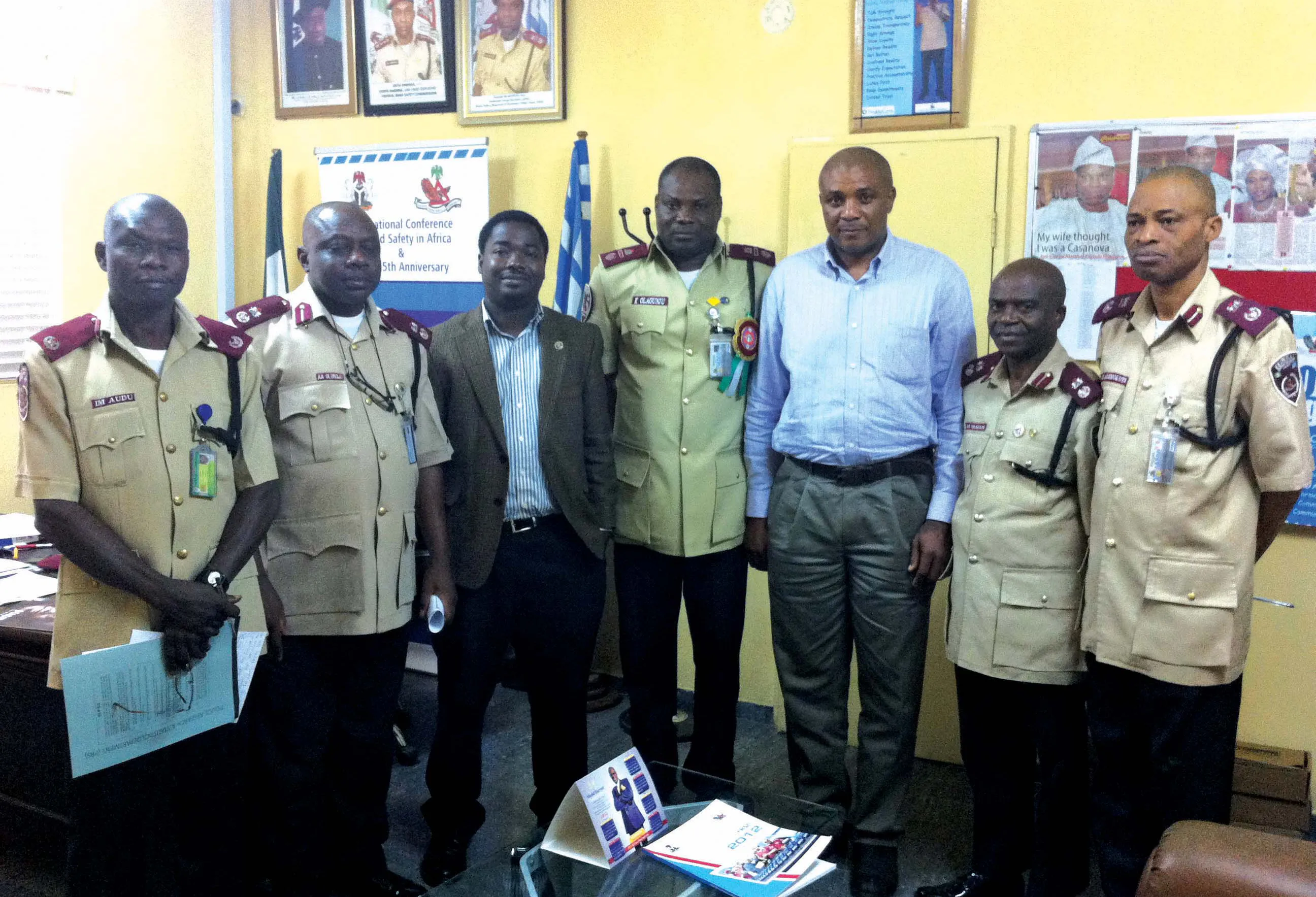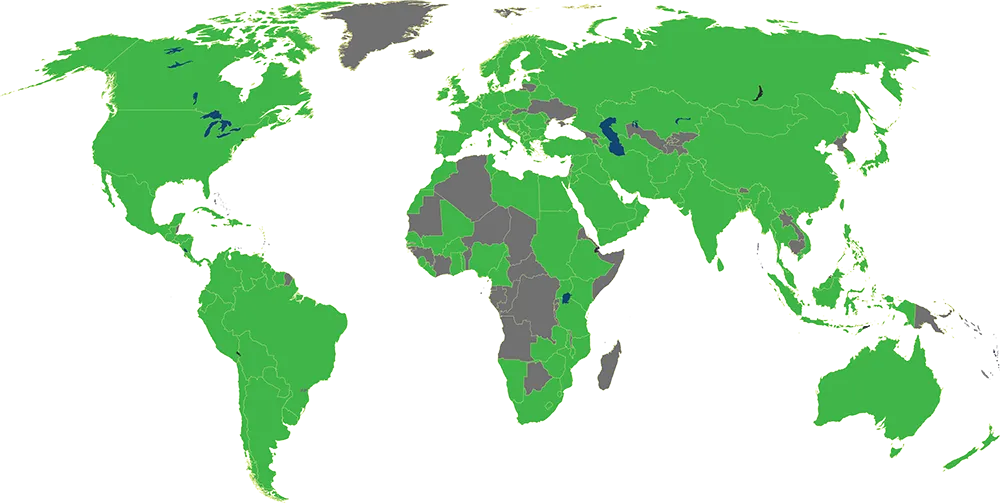Regional Congress to take place June 4-6 in Abuja, Nigeria
The 17th IRF World Meeting & Exhibition created opportunities for stakeholder discussions around global as well as regional agendas.
More than 50 participants representing heads of government agencies, development partners, academia, and contractors took part in an interactive roundtable discussion on the supply and provision of transport infrastructure on the African continent.
Topics ranging from safety to the qualifications needed for th
March 13, 2014
Read time: 3 mins

Regional Congress to take place June 4-6 in Abuja, Nigeria
The 17th2462 IRF World Meeting & Exhibition created opportunities for stakeholder discussions around global as well as regional agendas.
More than 50 participants representing heads of government agencies, development partners, academia, and contractors took part in an interactive roundtable discussion on the supply and provision of transport infrastructure on the African continent.
Topics ranging from safety to the qualifications needed for the next generations of African transport engineers were discussed. A remarkable feature of these exchanges was the willingness of participants to share knowledge and learn from the experiences of other stakeholders. This interactive model allows for experts from diverse backgrounds and involved at different stages of the decision-making process to contribute to overcoming transport infrastructure challenges on the African continent.
The energy generated by this roundtable has provided the impetus for the creation of the IRF’s Regional Committee on African Affairs. This Committee will establish a network through which the IRF will work with all African transport entities to analyse current challenges and develop bespoke programs and training opportunities where knowledge sharing and technology transfer will be primary drivers.
Although Africa faces a myriad of challenges in building a modern transportation infrastructure, overcoming these challenges will unleash far-reaching opportunities that will improve the welfare of the African continent in the 21st century. These opportunities will not be limited only to commerce, job-creation and connectivity, but will serve as avenues through which African economies can hope to achieve targeted middle-income development goals.
These questions will form the core of the IRF’s first Regional Congress on the African Continent, taking place on June 4-6, 2014 in Abuja at the invitation of the Nigerian Federal Ministry of Works. The Congress will address four thematic areas: road safety, asset management, public private financing, and professional development, with an added focus on women and youth in transportation. The Congress will bring together top international and regional experts dedicated to finding solutions to harness Africa’s transportation potential in the 21st century.
GRAA winning project profile: iiCollector Powered by Google Maps
Technology, Equipment & Manufacturing Category
Developed by3290 Resource International (Rii) and powered by Google Maps, the iiCollector is a flexible, customisable asset management system used to rate all infrastructure assets using a hand-held device.
The iiCollector rewrites the way that infrastructure elements can be captured, diagnosed, reported and prioritised: using the iiCollector, field inspectors are able to rate roadway deficiencies including potholes, debris on the road and high drop-offs that could be dangerous for motorists.
The iiCollector is dynamically integrated to office and field documentation, giving field personnel real-time access to relevant manuals, specifications and design drawings, while performing field condition inspection and assessment.
“We are very excited to be part of this worldwide organisation promoting technology and best highway practices,” said Rii CEO & chairperson of the board Farah B. Majidzadeh. “This recognition will promote safer roads by design.”
More information at %$Linker:2 External <?xml version="1.0" encoding="utf-16"?><dictionary /> 0 0 0 oLinkExternal www.resourceinternational.com Visit: www.resourceinternational.com false http://www.resourceinternational.com/ false false %>
The 17th
More than 50 participants representing heads of government agencies, development partners, academia, and contractors took part in an interactive roundtable discussion on the supply and provision of transport infrastructure on the African continent.
Topics ranging from safety to the qualifications needed for the next generations of African transport engineers were discussed. A remarkable feature of these exchanges was the willingness of participants to share knowledge and learn from the experiences of other stakeholders. This interactive model allows for experts from diverse backgrounds and involved at different stages of the decision-making process to contribute to overcoming transport infrastructure challenges on the African continent.
The energy generated by this roundtable has provided the impetus for the creation of the IRF’s Regional Committee on African Affairs. This Committee will establish a network through which the IRF will work with all African transport entities to analyse current challenges and develop bespoke programs and training opportunities where knowledge sharing and technology transfer will be primary drivers.
Although Africa faces a myriad of challenges in building a modern transportation infrastructure, overcoming these challenges will unleash far-reaching opportunities that will improve the welfare of the African continent in the 21st century. These opportunities will not be limited only to commerce, job-creation and connectivity, but will serve as avenues through which African economies can hope to achieve targeted middle-income development goals.
These questions will form the core of the IRF’s first Regional Congress on the African Continent, taking place on June 4-6, 2014 in Abuja at the invitation of the Nigerian Federal Ministry of Works. The Congress will address four thematic areas: road safety, asset management, public private financing, and professional development, with an added focus on women and youth in transportation. The Congress will bring together top international and regional experts dedicated to finding solutions to harness Africa’s transportation potential in the 21st century.
GRAA winning project profile: iiCollector Powered by Google Maps
Technology, Equipment & Manufacturing Category
Developed by
The iiCollector rewrites the way that infrastructure elements can be captured, diagnosed, reported and prioritised: using the iiCollector, field inspectors are able to rate roadway deficiencies including potholes, debris on the road and high drop-offs that could be dangerous for motorists.
The iiCollector is dynamically integrated to office and field documentation, giving field personnel real-time access to relevant manuals, specifications and design drawings, while performing field condition inspection and assessment.
“We are very excited to be part of this worldwide organisation promoting technology and best highway practices,” said Rii CEO & chairperson of the board Farah B. Majidzadeh. “This recognition will promote safer roads by design.”
More information at %$Linker:







